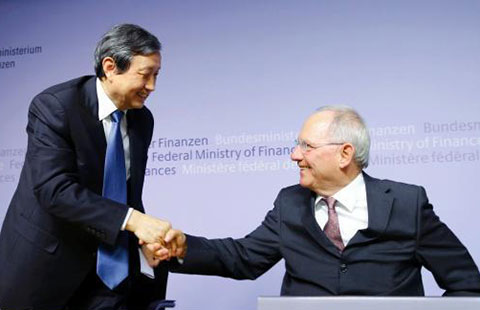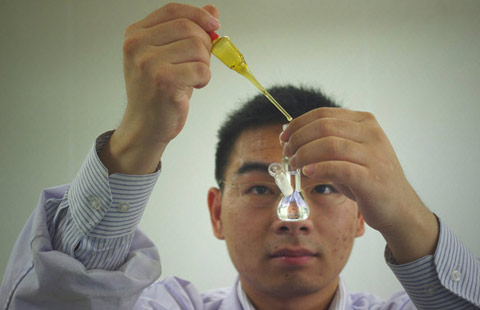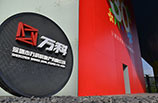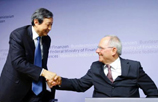Ceiling hike for foreign investors 'very soon'
By JIANG XUEQING (China Daily) Updated: 2015-03-27 07:17During the past five years, the foreign exchange regulator reduced its intervention in transactions by cutting the administrative approval items from more than 50 to 17.
Wang Yungui, head of the SAFE's policy and regulations department, said China's reform plan and measures to achieve capital account convertibility are very practical. The regulator will keep exploring and improving the reform plan while closely monitoring the cross-border capital flows.
"Whether China will experience capital inflows or outflows after it achieves full convertibility of the capital account will depend mainly on the international and domestic macroeconomic situations. We are moving forward more and more steadily on the way to promote economic reforms and restructuring. We believe most international and domestic investors will have a cool-headed and objective judgment on the directions of capital flow," he said.
Although the country experienced net capital outflows in cross-border receipts and payments from August to December last year, the situation reversed in the first two months of 2015 with a net capital inflow of $55.1 billion, up 38 percent year-on-year.
Foreign exchange deposits by corporates and individuals increased $63.9 billion in January and February although China had a $25.4 billion deficit in foreign exchange settlement and sales. It shows that corporate and individuals are holding more US dollars, rather than indicating that China is suffering capital outflows, Wang said.
- Israel requests to join Asian Infrastructure Investment Bank
- Chinese stocks rebound on April 1
- China, the West in Africa: more room for cooperation than competition
- Nanjing cuts taxi franchise fees
- Air China increases flights to Milan, Paris
- JD.com raises delivery charges
- Veteran corporate strategist upbeat about China economy
- L'Oreal China sales revenue up 7.7% in 2014

















